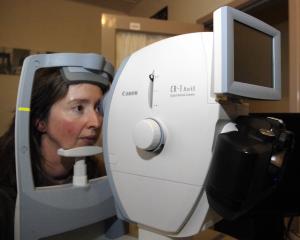There is an urgent need to address patient safety issues in general practice, University of Otago researcher and general practitioner Dr Katharine Wallis says.
Strengthening the safety culture within organisations is the key to this, rather than playing the blame or cover-up game, she suggests.
Patient safety research in general practice lagged behind that in hospitals, but there was an urgency to address it because more health care was provided in the community setting, increasing the opportunity for patient safety incidents.
With the help of a World Health Organisation grant, Dr Wallis recently carried out research at 12 Dunedin general practices to see how a safety culture tool called the Manchester Patient Safety Framework could work here.
She presented the findings of this pilot scheme at the WHO headquarters in Geneva this month.
Dr Wallis said the harm caused by healthcare had been identified as one of the most important public health problems in the developed world.
She found the Manchester tool could be adapted and used in the New Zealand setting to introduce the concept of a safety culture, helping to promote communication about patient safety and, in some practices, it led to changes being made.
Following the pilot scheme, one practice reported it had started a programme called "Mr Patient Safety" as a means of recording incidents.
Awareness of safety had improved and there was greater communication among staff around managing complex patients in that practice in a uniform way.
Five levels of safety culture can be applied to practices, with the most immature called the pathological, where the attitude was "why do we need to waste our time on patient safety issues?".
In this culture, information was hidden, failure was covered up, new ideas were crushed, and sharing information and learning was actively discouraged.
At the highest generative level, "managing patient safety is an integral part of everything we do".
At that level, information would be actively sought, new ideas welcomed and failure would prompt inquiry rather than cover-up or blame.
Study findings could be transferable to other countries where small health practices were common and where discussion about patient safety was in its infancy, she said.
Dr Wallis said the Manchester framework had been adapted for New Zealand and its use was endorsed by the Royal New Zealand College of Genera Practitioners.
That endorsement meant it could be used as an approved quality improvement activity which would count in practitioner recertification processes.











